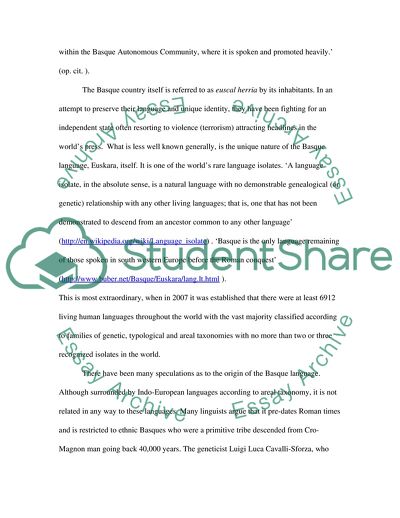Cite this document
(The Basque Language and Its Peculiarities Essay Example | Topics and Well Written Essays - 1250 words, n.d.)
The Basque Language and Its Peculiarities Essay Example | Topics and Well Written Essays - 1250 words. https://studentshare.org/culture/1712794-an-endangered-language-basque-in-spain
The Basque Language and Its Peculiarities Essay Example | Topics and Well Written Essays - 1250 words. https://studentshare.org/culture/1712794-an-endangered-language-basque-in-spain
(The Basque Language and Its Peculiarities Essay Example | Topics and Well Written Essays - 1250 Words)
The Basque Language and Its Peculiarities Essay Example | Topics and Well Written Essays - 1250 Words. https://studentshare.org/culture/1712794-an-endangered-language-basque-in-spain.
The Basque Language and Its Peculiarities Essay Example | Topics and Well Written Essays - 1250 Words. https://studentshare.org/culture/1712794-an-endangered-language-basque-in-spain.
“The Basque Language and Its Peculiarities Essay Example | Topics and Well Written Essays - 1250 Words”. https://studentshare.org/culture/1712794-an-endangered-language-basque-in-spain.


